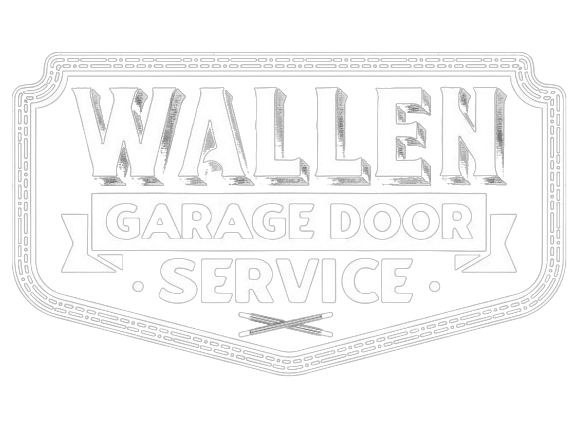Replacing a 2-car garage door is one of those necessary expenses homeowners eventually face. Whether it’s because of wear and tear, damage, or simply wanting to upgrade the look of your home, the replacement cost can sometimes come as a shock. With so many factors involved—like materials, insulation, customization, and professional installation fees—the price can vary widely. In this post, we’ll break down the real 2-car garage door replacement cost, what impacts these costs, and how to make sure you’re getting the best value for your money.
If you’re in the process of shopping around, you’ve probably noticed that prices can range from a few hundred dollars to several thousand. Don’t worry; we’re here to guide you through understanding what makes up these costs and how you can make an informed decision.

Understanding 2-Car Garage Door Replacement Cost: A Detailed Breakdown
Replacing a two-car garage door can significantly improve the curb appeal, functionality, and energy efficiency of your home. However, the cost of this project varies based on several factors. Below, we’ll break down the costs associated with replacing a 2-car garage door and explore some hidden costs you may encounter along the way.
Key Elements Determining the Cost
1. Garage Door Material
The material of your new garage door is one of the most significant factors impacting cost. Each material comes with its own advantages and price range. Here’s a closer look at some of the most common options:
- Steel: One of the most popular choices due to its durability and relatively low cost. Steel doors can vary greatly in price depending on their thickness, whether they are single or double-layered, and the level of insulation they provide. The price can range anywhere from $700 to $3,500, making it an attractive option for budget-conscious homeowners. Thicker steel doors with better insulation tend to be more expensive but offer superior energy efficiency.
- Wood: Wooden garage doors offer a classic, timeless aesthetic that many homeowners love. However, they require more maintenance, such as painting and weatherproofing, to keep them in good condition. The cost of wooden garage doors generally ranges from $1,200 to $4,500, with custom-built options on the higher end. Keep in mind that wood may not be ideal in areas with extreme humidity or weather changes, as it can warp or rot over time.
- Aluminum: Lightweight and resistant to rust, aluminum is a great option for homeowners in coastal regions. Aluminum doors tend to be less expensive than wood, with a typical cost ranging from $1,000 to $2,500. However, they are less durable than steel, which may make them prone to dents or dings over time.
- Fiberglass: Fiberglass garage doors are another excellent choice for humid or coastal environments because they don’t rust or warp like wood. These doors typically fall in the price range of $1,500 to $3,000, and they offer the added benefit of being lightweight. However, fiberglass can be prone to cracking under extreme weather conditions or impacts.
2. Insulation
Garage doors with insulation are a wise investment, particularly for homes where the garage is attached. Insulated garage doors help regulate temperature, reducing energy costs by keeping the cold out in the winter and the heat out in the summer. There are two main types of insulation: polystyrene and polyurethane, with the latter providing better thermal efficiency.
Adding insulation to a garage door can increase the price by $200 to $600. However, the energy savings you’ll experience over time often make the upfront investment worthwhile, especially in extreme climates.
3. Design and Customization
The design of your garage door plays a significant role in the overall cost. A basic, no-frills garage door is the most affordable option, but if you want to enhance the appearance of your home, there are many custom designs and features to consider.
- Windows: Adding windows to your garage door can give it a more attractive look while also allowing natural light to filter into your garage. Depending on the number, type, and style of windows, this can add $300 to $1,000 to the price.
- Decorative Hardware: Handles, hinges, and other decorative features can elevate the look of your garage door. Custom features like these can add anywhere from $100 to $500 to the overall cost.
- Custom Sizes: If your garage requires a door with non-standard dimensions, you can expect to pay more. Custom-sized doors typically add $500 or more to the cost, depending on how specialized the order is.
4. Professional Installation
Professional installation is highly recommended when replacing a garage door. Poor installation can lead to operational issues, including misalignment, excess wear on the door, or even safety hazards.
The cost for professional garage door repair or installation generally falls between $300 to $700, depending on the complexity of the job and your location. Factors like whether you need to install new tracks, adjust the door frame, or make other structural adjustments can increase the labor cost.
Hidden Costs to Consider
In addition to the obvious expenses, there are several hidden costs that could affect your budget. Here are a few things to watch out for:
- Removal of the Old Garage Door: Many installers charge an additional fee to remove and dispose of your old garage door. This can add anywhere from $100 to $150 to your total bill. It’s a good idea to confirm this cost ahead of time to avoid surprises.
- Hardware Replacement: Over time, the hardware that supports your garage door—such as the springs, tracks, and hinges—can wear out. If these components need to be replaced during the installation process, it can increase your total expense by $100 to $500. In some cases, these replacements may be necessary to ensure your new garage door functions correctly and safely.
- Garage Door Opener: If your current garage door opener isn’t compatible with your new door or is outdated, you may need to replace it. A new opener typically costs between $200 and $500, depending on the type and additional features like smart home integration or battery backups.
- Permits: In some municipalities, you may be required to obtain a permit to replace your garage door, especially if structural changes are involved. Permit fees can vary widely but typically fall in the range of $50 to $200. Check with your local government to see if a permit is necessary for your project.
Replacing a two-car garage door can cost anywhere from $1,000 to $7,000 or more, depending on the materials, insulation, customization, and installation. While the upfront cost can seem high, investing in a high-quality garage door that fits your needs and enhances your home’s appearance is worth the expense. Be mindful of hidden costs such as hardware replacement, custom sizes, and professional installation fees, and always get multiple quotes to ensure you’re getting the best value for your money.

Factors That Affect the 2 Car Garage Door Replacement Cost
Several variables can influence the final cost of replacing a two-car garage door, some of which may not be immediately obvious. While the material, size, and design of the door are critical factors, aspects like your location, seasonal demand, and additional features can also play a role in determining how much you’ll pay. Here’s a closer look at some of these factors:
1. Location Matters
Your geographic location can have a profound impact on the cost of your garage door replacement.
- Urban vs. Rural Areas: In large metropolitan areas, labor and installation costs tend to be higher due to increased demand for skilled professionals and the overall cost of living. Garage door installation in cities like New York, Los Angeles, or Chicago could cost you more simply because labor rates are elevated compared to smaller towns or rural areas.
However, if you live in a more remote location, your costs might also rise due to a lack of competition among service providers. Fewer companies offering installation services could mean less flexibility in pricing, and you might even face additional fees if installers must travel long distances to reach your home. - Regional Material Preferences: In certain areas, specific materials may be more popular or practical, which can influence cost. For example, aluminum doors may be more expensive in inland areas where rust is less of a concern, while wooden doors might be costlier in coastal regions where they require more maintenance due to humidity and salt exposure. Additionally, shipping costs for certain materials can vary depending on where you live, contributing to the overall cost.
2. Seasonal Pricing
Believe it or not, the time of year you choose to replace your garage door can have an impact on the cost.
- Off-Peak Discounts: In colder months, garage door companies may offer discounts to attract customers during the slow season. Fall and winter are typically less busy for home improvement projects, as homeowners tend to focus on indoor renovations. As a result, companies may offer promotional deals or lower installation fees to stimulate demand during this quieter period. This can present an opportunity to save hundreds of dollars on both the door and installation.
- Peak Season Prices: In contrast, spring and summer are considered peak seasons for home improvement projects, and garage door installations are no exception. During this time, demand is at its highest, and prices may surge due to the increased workload for contractors. If you plan to replace your garage door during these seasons, you may face higher prices or longer wait times for installation due to the volume of customers.
- Weather Conditions: Extreme weather conditions in certain areas, such as very cold winters or scorching hot summers, can also drive up costs if the project becomes more difficult to complete under challenging weather conditions. For instance, frozen ground, excessive heat, or wet conditions may slow down the process or require additional preparation, which can increase labor costs.
3. Additional Garage Door Features
Upgrading your garage door with modern features can enhance its functionality, security, and convenience, but these extras often come with additional costs. Here are some features to consider:
- Smart Technology: Many homeowners are opting for smart garage door openers that can be controlled via smartphone apps. These systems allow you to open or close your garage door remotely, monitor the status of the door, and even integrate with home automation systems like Amazon Alexa or Google Home. Adding a smart garage door opener can increase the total cost by $200 to $500, depending on the brand and features.
- Keypads and Remotes: Installing an external keypad allows you to open the garage door without a remote control, adding convenience for family members or visitors. Keypads usually add $50 to $100 to the overall price. Similarly, additional remote controls for your garage door opener could increase the cost by $20 to $50 per unit.
- Security Features: Enhancing your garage door’s security is another way to add value, but it will also raise costs. You can opt for advanced locking systems, rolling code technology (which changes the door’s code each time you open it to prevent hacking), and even motion-sensing lights. Security upgrades can range from an extra $100 to $500, depending on the complexity of the system.
- Safety Mechanisms: Modern garage doors often come with safety features such as automatic reverse sensors, which prevent the door from closing if it detects an object in its path. These safety mechanisms are critical, especially for families with young children or pets. Depending on the door and opener you choose, safety upgrades might add $100 to $200 to your overall bill.
4. Regional Climate Considerations
In addition to standard garage door materials and features, the climate in your region can affect your choice of door and, subsequently, the price.
- Coastal Areas: Homeowners in coastal regions, where the air is more humid and salty, often prefer materials like aluminum or fiberglass, which are resistant to rust and corrosion. However, these materials may be more expensive in coastal areas, driving up the overall cost of the door. Moreover, you may need to choose additional weatherproofing features, which could further increase the cost.
- Cold Climates: In colder climates, the need for better insulation becomes more critical. Insulated garage doors help keep cold air out and prevent heat loss from the home, especially if the garage is attached. A high-R-value (which measures the insulation’s effectiveness) door might be more expensive but could result in energy savings in the long run. The cost for an insulated door is generally $200 to $600 more than a non-insulated one.
- Wind-Resistant Doors: In areas prone to hurricanes or high winds, you may need to install a garage door that meets specific building codes for wind resistance. Reinforced or hurricane-rated doors are designed to withstand extreme weather, but they typically come with a higher price tag—expect to pay $500 to $1,000 more for this type of door, depending on the level of reinforcement required.
When replacing a two-car garage door, it’s essential to factor in more than just the door itself. Your location, the time of year, and any additional features or enhancements you choose can all influence the overall cost. Homeowners in large cities may pay more for labor, while those in rural areas might face higher fees due to limited service options. Meanwhile, choosing the right time of year and selecting features like smart technology or added security can also impact your final expense. Understanding all of these variables will help you make informed decisions and budget accordingly for a garage door replacement.

Common FAQs About 2 Car Garage Door Replacement Cost
1. What is the average cost to replace a 2 car garage door?
The average cost for a standard 2 car garage door replacement is between $1,500 and $3,500, including materials and installation. High-end custom doors with premium features can easily exceed $4,000.
2. Does it cost more to replace a garage door with windows?
Yes, adding windows to your garage door typically increases the cost. On average, adding windows can increase the price by $200 to $600, depending on the style and size of the windows.
3. How much does garage door insulation add to the cost?
Insulated garage doors offer energy efficiency and better noise reduction, but they do come at a higher price. On average, insulation adds about $200 to $600 to the total cost, depending on the material and insulation rating.
4. How long does it take to install a new garage door?
A professional garage door installation typically takes between 3 to 6 hours, depending on the complexity of the job and the size of the door. Be sure to factor this into your overall scheduling when planning your replacement.
5. Can I install a garage door myself to save money?
While it’s possible to install a new garage door yourself, it’s not recommended unless you have the right tools and experience. Improper installation can lead to safety hazards and costly repairs down the road. Most homeowners find that paying for professional installation is worth the added safety and peace of mind.
Conclusion
When considering a 2 car garage door replacement, it’s important to understand the factors that contribute to the overall cost. From materials and insulation to professional installation and hidden fees, there’s more to the price tag than meets the eye. By understanding these variables and working with a trusted garage door service, you can make a confident, informed decision that balances both your budget and your home’s needs.
Ready to upgrade your garage door? Wallen Garage Door is here to help! With expert knowledge, professional installation services, and high-quality materials, we ensure your 2 car garage door replacement is seamless and hassle-free. Contact us today for a free consultation and discover how we can improve the look, safety, and functionality of your garage.
End Note
Wallen Garage Door believes in quality from start to finish. Our work is a testament to our core values – solid, ethical, and characterized by professional workmanship. Whether you’re in need of a new installation or looking for a repair, we’ve got you covered. Explore our About Us, check out our past projects in our Gallery, or stay informed with tips on our Blog. Need a new garage door installed? Visit our Garage Door Installation in Hampton, VA page for details. Stay connected through Pinterest, Facebook, and Instagram. To learn more about our service areas, check out Service Areas, and let’s get started on your garage door transformation!







